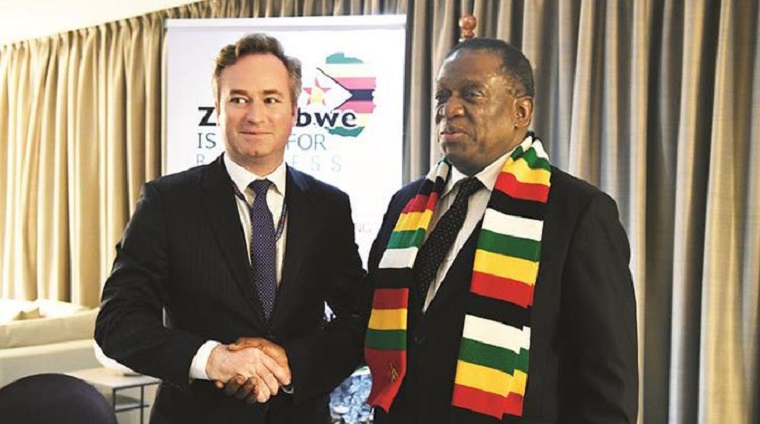 The phrase “Talk is cheap” aptly describes what is happening in Zimbabwe at the moment.
The phrase “Talk is cheap” aptly describes what is happening in Zimbabwe at the moment.
Industry and commerce have welcomed the new cabinet of President Emmerson Mnangagwa especially new Finance Minister Mthuli Ncube and Industry and Commerce Minister Mangaliso Ndlovu but this seems to be only talk.
The president of the Confederation of Zimbabwe Industries Sifelani Jabangwe said: “We are excited about the new cabinet. As industry we believe the Ministry of Industry and Commerce is in appropriate hands to drive industry forward.
“As industry there are some pending issues we believe need immediate attention and these include ease and cost of doing business. We look forward to engage them and work together as we map the way forward to grow our economy.”
Zimbabwe National Chamber of Commerce chief executive officer Takunda Mugaga also welcomed the new administration saying: “Generally, the composition of the cabinet is inspiring and we expect results. It is a break from the past, traditionally it had become predictable to know who would make it in the new Cabinet but this one is different, which is commendable.
“As business, we are willing to work with them. We want servant leadership, ministers who also listen to advice. What makes them good is their ability to listen.”
But, as they say, actions speak louder than words. There has been no action yet to prove that industry and commerce have really welcomed the new administration if one goes by the Old Mutual Implied Rate (OMIR) that gauges the real market value of the Zimbabwean currency the bond note.
It is based on the comparison of the Old Mutual share price in London and Harare and has generally been accepted as the real rate of the Zimbabwean currency dating back to the Zimbabwe dollar.
The bond note is officially pegged at the same rate as the United States dollar but the OMIR shows what the market really thinks which reflects the confidence that the market has in the Zimbabwe administration.
Bond notes were introduced in November 2016, trading at par with the United States dollar, but by the beginning of March 2017 the OMIR was already down to 1.3125.
The rate continued to slide as the market continued to lose confidence in President Robert Mugabe’s government peaking at 5.7905 on 23 October days after Mugabe had announced a new cabinet under which Ignatius Chombo was made Finance Minister with Patrick Chinamasa who had been handling the portfolio being demoted to a mediocre new Ministry of Cyber Security.
The rate, however, plunged down to 1.825 on 20 November, five days after the military intervention to restore legacy, when the Zimbabwe African National Union-Patriotic Front gave Mugabe an ultimatum to step down or face impeachment in Parliament. It had already removed him as party leader the previous day replacing him with Emmerson Mnangagwa who was out of the country after being expelled from the government on 6 November.
The OMIR continued to decline under Mnangagwa’s new administration heating a low of 1.4573 on 22 January this year but it started rising as the country headed for elections hitting a new peak of 2.3654 on 21 May.
It was down to 2.2594 on election day and further declined to 2.186 on 1 August when violence broke out in the capital resulting in six people being killed.
The OMIR has been on the rise since clocking 3.006 on 7 September when Mnangagwa announced his new cabinet.
The rate did not fall, however, despite people welcoming the new cabinet which saw many old hands being removed. Instead it went up to 3.111 on Monday and then up again to 3.1387 on Tuesday and has been settled at 3.0827 since Wednesday.
(282 VIEWS)


